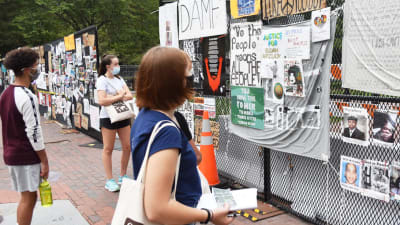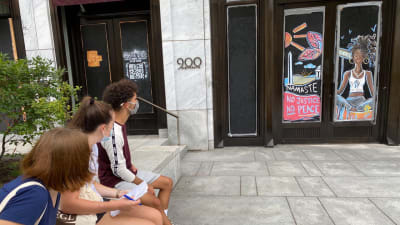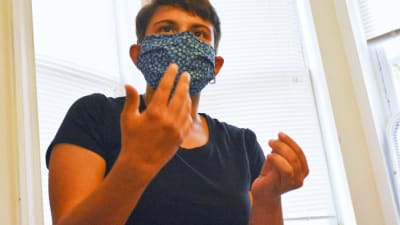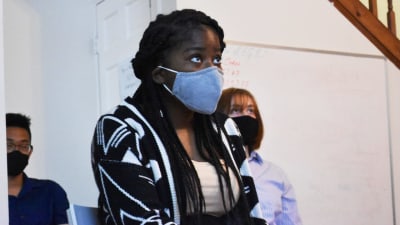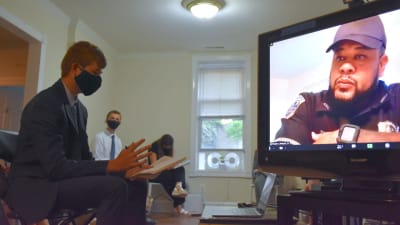Acting Ethically After George Floyd: Week Two at SEGL
On May 25, 2020, eight minutes and 46 seconds changed history.
Or did they?
The answer to that question depends, in large part, on the actions our leaders take. What ought those leaders–what ought we–to do in response to George Floyd’s death? This question focused our semester’s second case study.
As the week progressed we broke our central question into three.
First, we asked students to consider how the police should respond to the death of George Floyd. To help us answer, we welcomed Medgar Webster, Sr., Vice Chair of the DC Police Union. Webster, an African American man, career police officer, and lifelong DC resident, spoke thoughtfully about the role police unions ought to play in ensuring justice. He tackled challenging questions about defunding and abolishing the police, about being an African American man and a police officer, and about high profile cases like George Floyd and Breonna Taylor (his take on the latter sent students scurrying for more information).
The second question we asked students to contemplate was how activists should respond to Mr. Floyd’s death. On Wednesday we braved soggy weather and walked to what is now known as “Black Lives Matter Plaza,” adjacent to Lafayette Park, the White House, and St. John’s Episcopal Church (the latter made recently famous as the location of President Trump’s photo holding a Bible). Students walked where protesters scrambled before Trump’s visit to St. John’s, contemplated DC Mayor Muriel Bowser’s makeshift and defiant public space, and viewed hundreds of provocative posters, flyers and impromptu works of art. Then they wolfed down chili from Ben’s Chili Bowl, a famous local black-owned eatery, before trudging back to Capitol Hill for a short but meaningful reflection session.
On Thursday we met with Kimberly Jones, whose viral video (note: contains strong language) is perhaps the most famous to come out of the Floyd protests. In it she offers a defense of rioting that is at once emotional and rational. Jones, who is also a noted young adult author, spent an hour answering a variety of personal and ethical questions from students. Her style allows her to relate instantly with students, who found it valuable to meet the human being behind such a famous video.
On Friday, we asked our third question: how should policymakers respond to Mr. Floyd’s death? For this, we met with Toyin Awesu, Communications Director for the Congressional Black Caucus, which represents African Americans in the House and Senate (though officially non-partisan, the Caucus currently has no Republican members). Is it better to give the police additional funds to implement reforms or defund the police? How did the summer’s riots influence Congress? Are there policies that would have prevented the death of Ahmaud Arbery, who was not killed by the police? Awesu tackled these and many other questions.
Of course, we were only able to provide three voices this week. Many disagree with each of these voices, and as always we encouraged students to seek out other voices with other perspectives. To borrow from last week’s post: the more you “SEE,” the better you will “THINK,” “ACT,” and “REFLECT.”
Our conversations about race will no doubt continue, informed by this week’s intensive work. Next up, we study a related kind of unrest: the 1994 Rwandan genocide.
